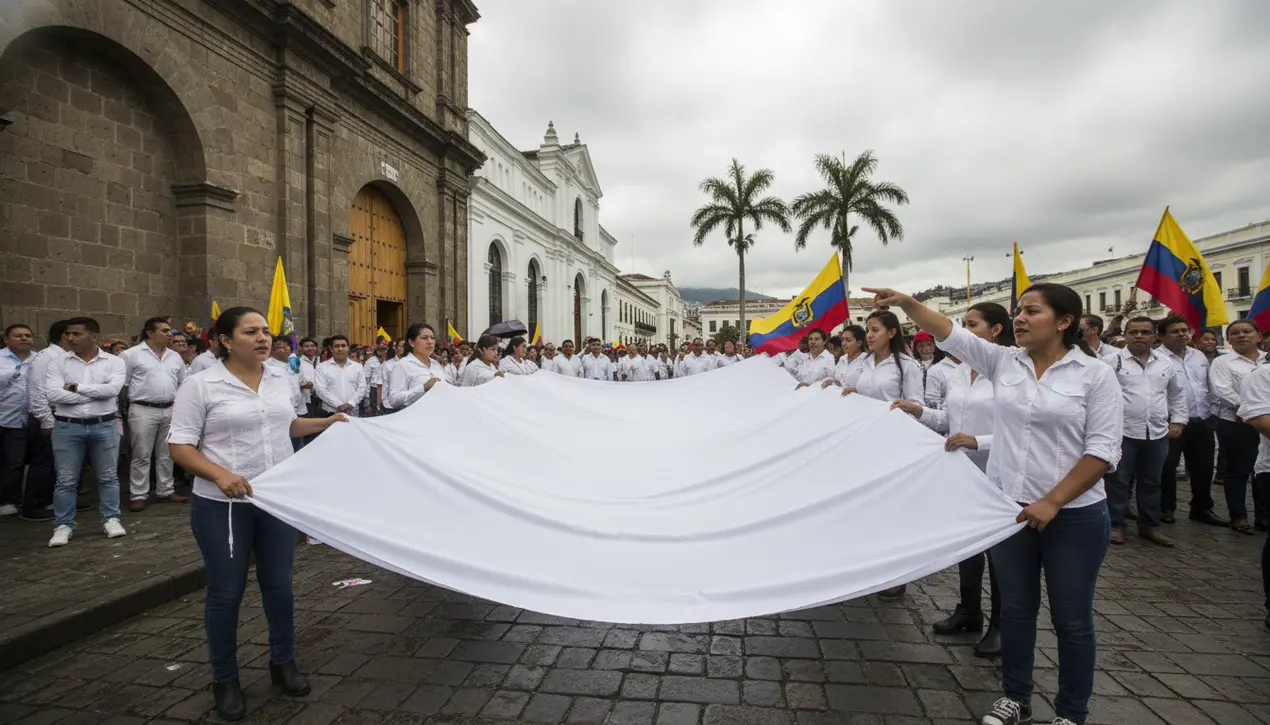- News
- legislation
- Ecuador's Dual Rejection: A Sovereign Stance on Military Bases and Constitutional Reform

PoliticslegislationConstitutional Amendments
Ecuador's Dual Rejection: A Sovereign Stance on Military Bases and Constitutional Reform
RO
Robert Hayes
3 hours ago7 min read
In a definitive assertion of national sovereignty, Ecuador has simultaneously rejected the establishment of foreign military bases and a government-led initiative to rewrite its constitution. This dual decision marks a pivotal moment for President Daniel Noboa's administration, highlighting the intricate balance between domestic political ambitions and international partnerships.President Noboa, whose policies have often aligned with U. S.conservative interests, had formally petitioned the courts to include a constitutional rewrite as a central question in an upcoming referendum—a move that would have set the stage for a profound restructuring of the nation's foundational legal document. Such constitutional overhauls have a contentious history in Latin America, frequently used by incumbent leaders to centralize authority, as seen in Venezuela under Hugo Chávez and in Bolivia under Evo Morales.The parallel rejection of foreign military installations is a powerful statement of non-alignment, directly countering a regional trend of deepening security cooperation, often with the United States, to combat the escalating power of drug cartels and organized crime. For Ecuador, a nation grappling with a severe surge in violence, this stance requires navigating a complex diplomatic landscape: securing essential international security and economic aid while upholding a principle of sovereignty that resonates with regional powers like Brazil and Mexico.Political analysts suggest these rejections will significantly strengthen opposition and civil society groups, who had criticized the constitutional push as a potential maneuver to extend executive power. Furthermore, it sends an unambiguous message to global allies about the boundaries of Ecuador's cooperation.This scenario encapsulates a central challenge facing many modern democracies: how to effectively address internal security and governance crises without eroding democratic institutions or sacrificing national autonomy to populist impulses. The long-term consequences of this decision are now under global scrutiny, as observers assess whether this firm stance will ultimately bolster Ecuador's democratic resilience or expose new vulnerabilities in its ongoing struggle against internal threats.
#Ecuador
#referendum
#foreign military bases
#constitution
#Daniel Noboa
#featured
Stay Informed. Act Smarter.
Get weekly highlights, major headlines, and expert insights — then put your knowledge to work in our live prediction markets.
Related News
Comments
Loading comments...
© 2025 Outpoll Service LTD. All rights reserved.